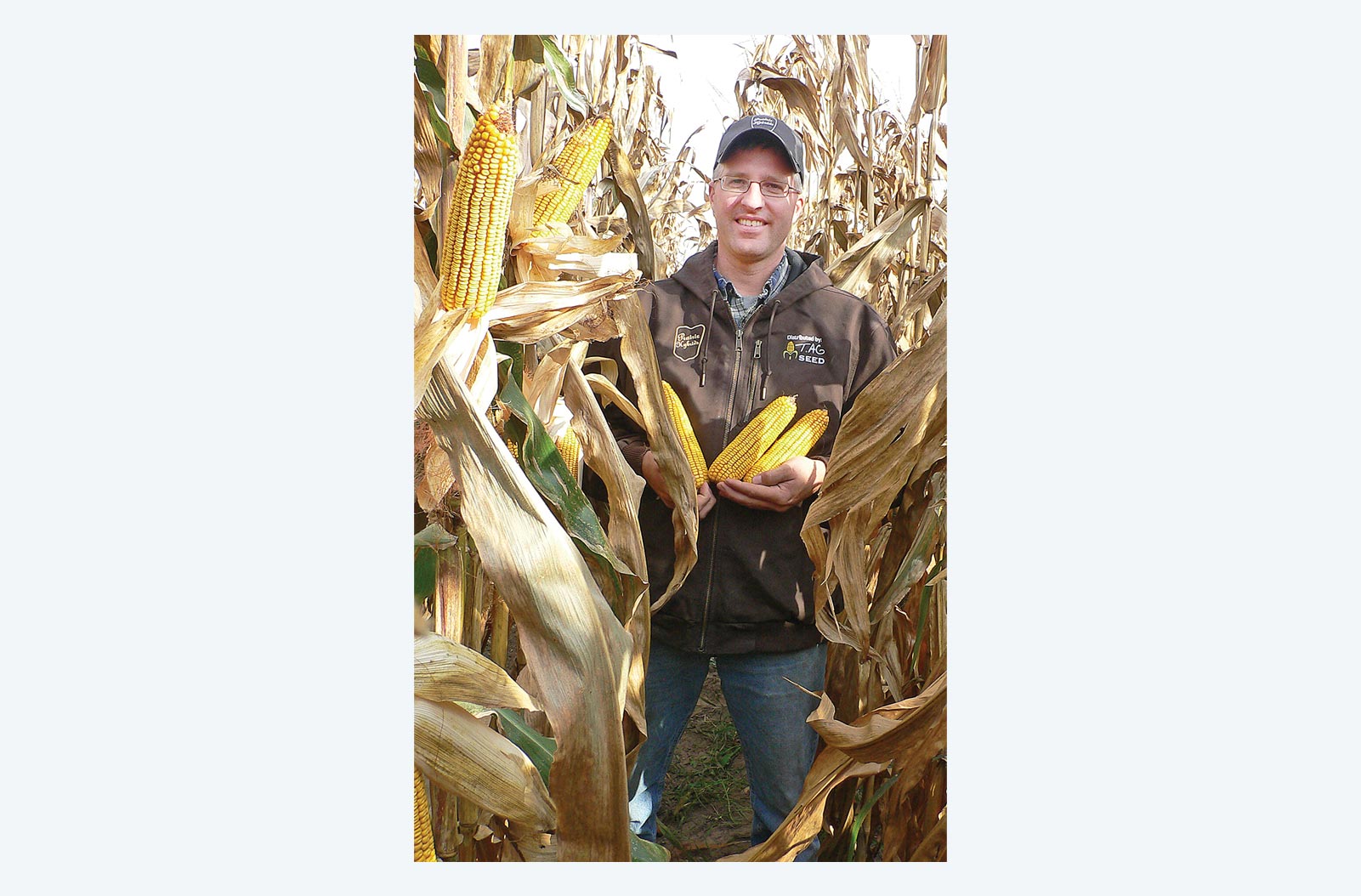Kevin Tart believes that the seed knows best.
“I’ve seen a lot better crops with non-GMO seeds,” said the rural Spring Valley farmer.
Tart and his father, David, have planted non-genetically modified organism (GMO) corn seed for the past four years and found that they have had better success than with planting genetically engineered corn seed. He related that there are numerous reasons he plants non-GMO seed, beginning with a responsibility to the environment on a microscopic level and factoring in that their beef cattle operation has shown greater production.
The Tarts’ farm, now planted with corn grown from seed obtained through Prairie Hybrids, a mostly Mennonite-owned seed company based in Deer Grove, Illinois, has served as their home and livelihood, but recently, the father and son have chosen to take one side of the ongoing debate about whether engineered seed can produce more corn or whether hybrids — seeds crossed with other seeds to gain natural advantages of the traits of each kind of seed — are actually going to out-produce the GMO, or engineered, seed. The point of farming is to raise quality food sources but to do so in cooperation with nature, using the bacteria and fungi, or decomposers, that are already available in the soil to promote a life cycle that is beneficial to both the farmer and the soil, the Tarts noted.
“Good non-GMO corn leaves something for the bacteria to break down,” David pointed out.
Kevin commented on how striking a balance between getting disease-resistant corn and corn that produces enough to sustain the farm and ultimately the nutritional economy is important, and that changes in their farm operations have been visible.
“Our beef cow operation…we don’t see the turnaround that they’d see in dairy, but they’re a little more healthy,” he said. “The field health…the crops look better, we’ve got higher yields than before. Everybody switched to GMOs 20 years ago to get higher yields, but now, there’s a drop in yields. It’s about getting the soil health back.”
The Tarts acknowledged the ongoing debate related to hybrid and engineered seed corn, but ultimately, they’ve chosen to go non-GMO, and so far, it’s their success story growing on tall stalks clinging to the rolling hillsides of this bluff country.
This article originally appeared in the Spring Valley Tribune and is reprinted with permission.





